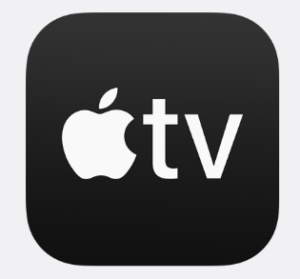OPINION: It’s Sunday once again, meaning it’s time to break down our winner and loser in tech from the last week.
Perhaps the biggest news of the week came from Sky as the company announced the successor to its all-in-one Sky Glass TV, the Sky Glass Gen 2, along with a more affordable model called the Sky Glass Air.
Apple dodged the rumoured iPhone SE 4 reveal for another week, while Audio-Technica announced new cartilage-conduction headphones and Beats brought heart-rate monitoring to the PowerBeats Pro 2.
Elsewhere, Returnal developer Housemarque announced Saros, Apple Maps quietly added cycling routes across the UK and Ireland and Ninja promised soft serve at home with the Ninja Swirl.
Keep reading to discover who (or what) was crowned winner and loser this week.


Winner: Apple (and Android users)
Our winner this week is Apple after the company finally announced it would be bringing the Apple TV app to Android phones just in time for the 2025 Major League Soccer season.
This is major (and long-awaited) news as the app is required to access the Apple TV Plus streaming service, meaning that, until now, Android users had no official way to stream shows like Severance, Ted Lasso and Silo, as well as original films like CODA and Killers of the Flower Moon when travelling, on their daily commute or at the gym.
The app is also needed to access MLS Season Pass, with Apple holding exclusive global rights to Major League Soccer.
Android users could stream the Apple TV Plus library and MLS Season Pass at home on Android TV devices but, if they didn’t have an iPhone or iPad, they were out of luck when it came to mobile apps. This felt like a particularly big oversight when Apple Music has been available on the Google Play Store since 2015.

Apple TV+
The Home of Apple Originals. Enjoy star-studded, award-winning series, films, and more. Grab your 7 day free trial now.
- Apple
- 7-day free trial
- £8.99 p/m
As Chris Smith pointed out in his news coverage, it never made sense for Apple to exclude Android users from its streaming services as the company’s revenue is now largely driven by those services.
Unlike streaming competitors such as Netflix and Disney Plus, Apple TV Plus continues to offer a free seven-day trial, meaning Android users can try the app for free before deciding whether to stick around. If you’re looking to jump ship after Netflix’s recent price hike, now might be the time to check out some of those Apple Originals you’ve been hearing about.


Loser: Google
This week’s loser is Google as the company encouraged creators to generate full AI video clips for use in YouTube Shorts.
The announcement arrived alongside the release of Veo 2, Google DeepMind’s newest video generation model. Previously, a feature called Dream Screen allowed users to generate image and video backgrounds for Shorts from a text prompt. The feature was announced in September 2023.
A year and a half later, Google is ready to introduce Veo 2, a more powerful model capable of generating videos more quickly than before. Google claims that Veo 2 allows Dream Screen to understand real-world physics and human movement better for more detailed and realistic results. Users can also specify the style, lens and cinematic effect used to customise images and videos.
Dream Screen also includes a new capability powered by Veo 2 which is the ability to generate standalone clips that can be added to any shorts. This means that users could, theoretically, begin publishing videos consisting entirely of AI-generated clips instead of using these tools to add extra visual appeal to their usual content.
Of course, this is already happening across Shorts, TikToks and Reels but, by inviting users to generate AI videos directly in the app, Google is making the process significantly easier for its wider user base to create videos with minimal thought or effort.
It feels as though we’re heading down a slippery slope with more and more ‘brain rot’ content clogging up our feeds. If we’re not careful, it might not be long until the Dead Internet theory becomes YouTube’s reality.




